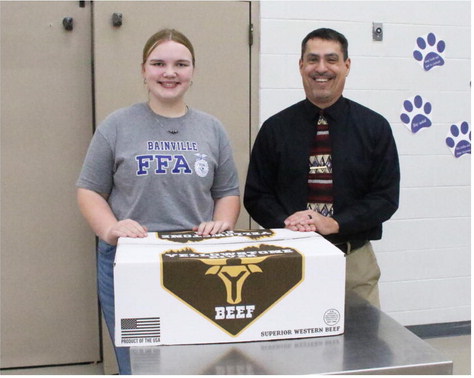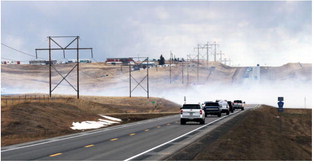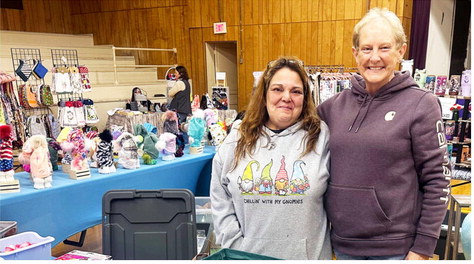Cattle Committee Bill Gets Robust Hearing
A fight over a beef promotion program saw boisterous debate in a Senate Agricultural Committee meeting last week.
House Bill 119, brought by House Speaker Rep. Brandon Ler, would create the Montana Cattle Committee, which would run what’s called a “checkoff program,” or promotion program for a specific product, in this case Montana beef.
Perhaps the most famous checkoff program was the U.S. Department of Agriculture’s “Got Milk?” campaign. In this case, it would be a state — not federal — program promoting in-state beef producers.
However, the bill, if passed, would ask for a vote by cattle producers to create the program. The vote would also create a fee, $1 per head, on about 1.75 million beef cows in Montana to fund marketing or other promotional work.
“I just want to state that this bill is not imposing the tax,” said Ler, R-Savage. “The state itself is not imposing the tax. That would be left up to a referendum of the producers.”
He added he wants to see the bill passed to “promote Montana beef.”
The bill states the committee “is uniquely situated” to provide benefits including “advertising, promotion, food safety production research, nutrition, marketing research, the collection and dissemination of production and related statistics, and public education.”
Essentially the bill seeks to create a “favorable environment” for Montana cattle producers to market their product both domestically and internationally.
At the heart of the debate was an additional tax on beef cows which opponents said would add up for producers, and they didn’t want to be paying to help market their competitors’ products. Proponents of the bill have said the program will benefit cattle producers across the state.
“We’re just asking for the opportunity to ask the producers of the state of Montana if they would like to tax themselves and see if we can improve the atmosphere for the livestock producers, improve the profitability, basically,” said Gene Curry, who is the chairman of the Board of Livestock, but was speaking for himself as a livestock producer. “We’re not asking for you to levy a tax on us or anybody. We’re just asking you to give us the ability to ask the producers if they would like to tax themselves.”
The cattle committee would be housed in the Department of Agriculture. It would be made up of seven members appointed by the governor.
Originally the bill also dictated what groups can forward names for consideration to the governor, though it’s since been amended to open up the nomination process further.
The groups originally named in the bill as organizations that would pick the members were the Montana Stockgrowers Association, the Montana Cattlemen’s Association, the Montana Association of Livestock Auction Markets, Montana Cattlewomen, the Montana Beef Council, the Montana Farm Bureau Federation, and the Montana Farmers Union.
Representatives of two of those groups — the Montana Farmers Union and the Montana Cattlemen’s Association — spoke against the bill during its Senate hearing.
“Ultimately, it pits neighbor against neighbor. That’s a problem in my mind. As a business owner, I wouldn’t pay for my competitor’s advertising no matter how small the bill is, it just doesn’t make sense,” said John Ferrat, a rancher and board member for the Montana Farmers Union. “House Bill 119 is nothing more than taxation without representation, and if I recall, in 1773 there was some tea dumped into a harbor over just such a thing.”
Blackfeet and Chippewa Cree representatives also spoke against the bill, as there is no direct tribal representation on the board.
“We do have Montana brands that were forced upon us to sell our cattle,” said Craig Iron Pipe, representing the Blackfeet tribal agriculture department and is a producer himself. “We would like a voice at the table.”
The bill was first introduced on Jan. 6. It had its first hearing two days later and some who provided testimony said they had little notice the bill was coming.
Last week, the committee did not take immediate action on the bill. It passed the House on 52-47 vote to send it to the Senate.
A fiscal note for the bill said the cattle committee would cost $1.5 million per year, but would be paid for by private donations and the head fee on livestock. Ler did not sign a third, most recent fiscal note, but signed the previous two.


